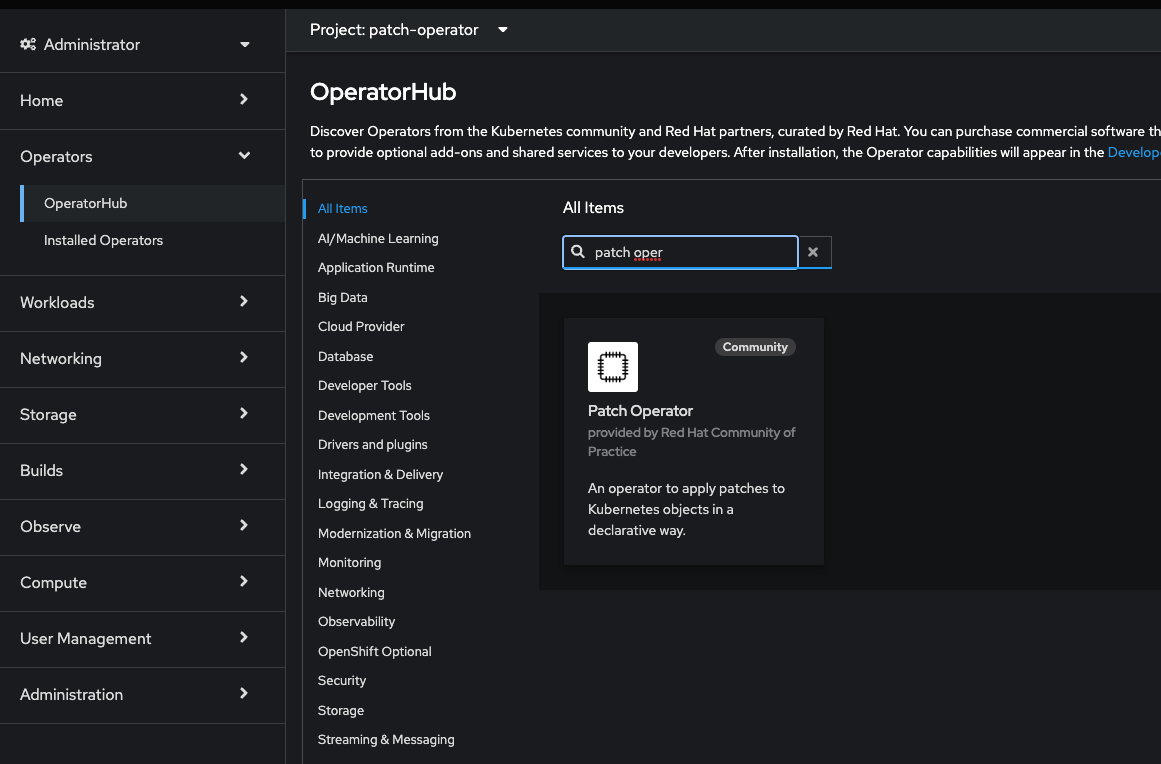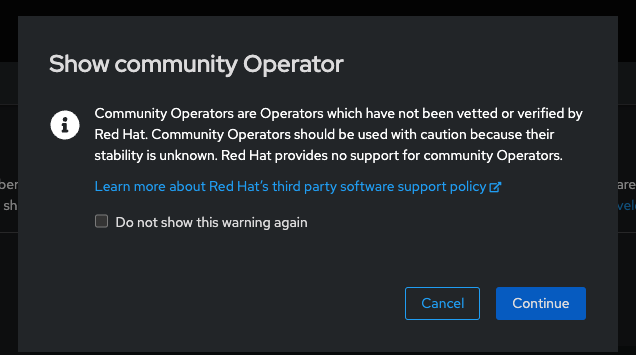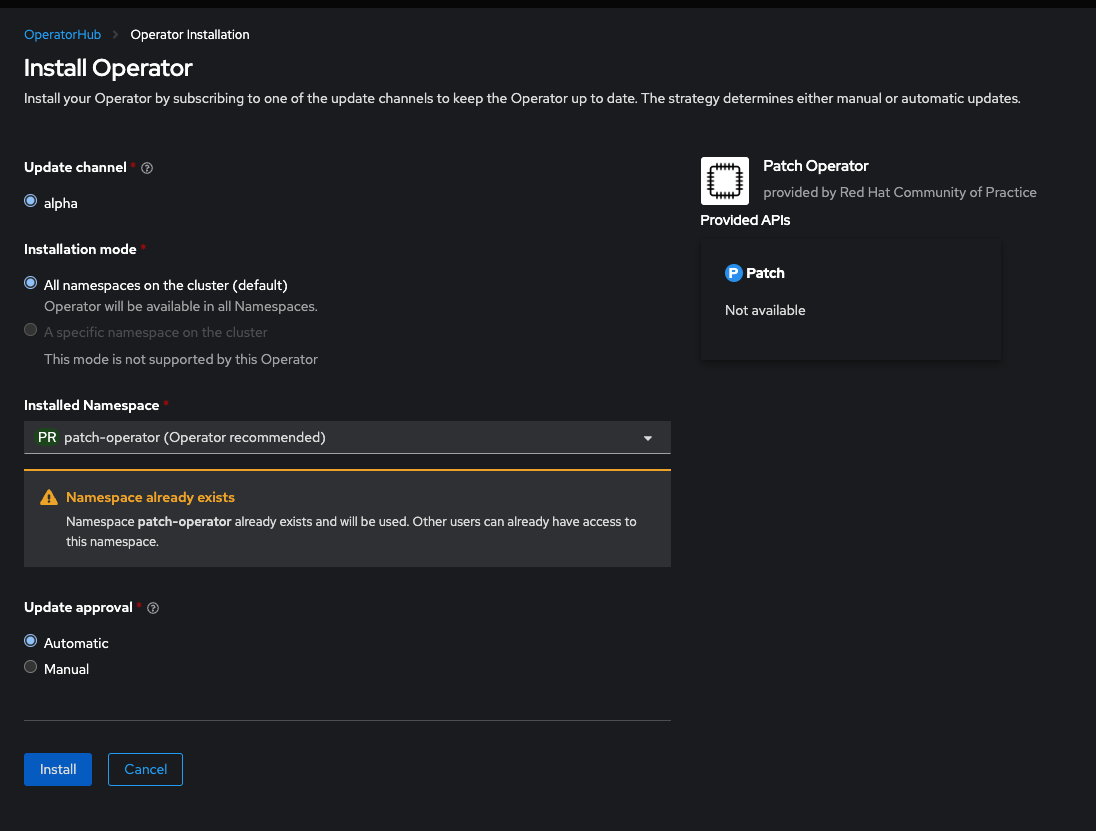Patch token-refresher to use a cluster proxy
This content is authored by Red Hat experts, but has not yet been tested on every supported configuration.
Currently, if you deploy a ROSA or OSD cluster with a proxy, the token-refresher pod in the openshift-monitoring namespace will be in crashloopbackoff. There is an RFE open to resolve this, but until then this can affect the ability of the cluster to report telemetry and potentially update. This article provides a workaround on how to patch the token-refresher deployment until that RFE has been fixed using the patch-operator.
Prerequisites
A logged in user with
cluster-adminrights to a ROSA or OSD Cluster deployed using a cluster wide proxyYou can use the
--http-proxy,--https-proxy,--no-proxyand--additional-trust-bundle-filearguments to configure a ROSA cluster to use a proxy.
Problem Demo
Check your pods in the openshift-monitoring namespace
oc get pods -n openshift-monitoring | grep token-refreshertoken-refresher-74ff5d9f96-2mm4v 1/1 CrashLoopBackOff 5 5m
Install the patch-operator from the console
Log into your cluster as a user able to install Operators and browse to Operator Hub

Accept the warning about community operators

Install the Patch Operator

Create the patch resource
Create the service account, cluster role, and cluster role binding required for the patch operator to access the resources to be patched.
cat <<EOF | oc apply -f - apiVersion: v1 kind: ServiceAccount metadata: name: token-refresher-patcher namespace: patch-operator --- apiVersion: rbac.authorization.k8s.io/v1 kind: ClusterRole metadata: name: token-refresher-patcher rules: - apiGroups: ["config.openshift.io"] resources: ["proxies"] verbs: ["list","watch"] - apiGroups: ["config.openshift.io"] resources: ["proxies"] resourceNames: ["cluster"] verbs: ["get","list","watch"] - apiGroups: ["apps"] resources: ["deployments"] verbs: ["list","watch"] - apiGroups: ["apps"] resources: ["deployments"] resourceNames: ["token-refresher"] verbs: ["get","list","watch","patch","update"] --- apiVersion: rbac.authorization.k8s.io/v1 kind: ClusterRoleBinding metadata: name: token-refresher-patcher roleRef: apiGroup: rbac.authorization.k8s.io kind: ClusterRole name: token-refresher-patcher subjects: - kind: ServiceAccount name: token-refresher-patcher namespace: patch-operator EOFCreate the patch Custom Resource for the operator
Note: This tells the Patch operator to fetch proxy configuration from the cluster and patch them into the token-refresher Deployment.
cat <<EOF | oc apply -f - apiVersion: redhatcop.redhat.io/v1alpha1 kind: Patch metadata: name: patch-token-refresher namespace: patch-operator spec: serviceAccountRef: name: token-refresher-patcher patches: tokenRefresherProxy: patchType: application/strategic-merge-patch+json patchTemplate: | spec: template: spec: containers: - name: token-refresher env: - name: HTTP_PROXY value: "{{ (index . 1).spec.httpProxy }}" - name: HTTPS_PROXY value: "{{ (index . 1).spec.httpsProxy }}" - name: NO_PROXY value: "{{ (index . 1).spec.noProxy }}" targetObjectRef: apiVersion: apps/v1 kind: Deployment name: token-refresher namespace: openshift-monitoring sourceObjectRefs: - apiVersion: config.openshift.io/v1 kind: Proxy name: cluster EOF
Check that the pod has been patched correctly
oc get pods -n openshift-monitoring | grep token-refresher
token-refresher-5c5dcb6587-ncrzj 1/1 Running 0 5s
